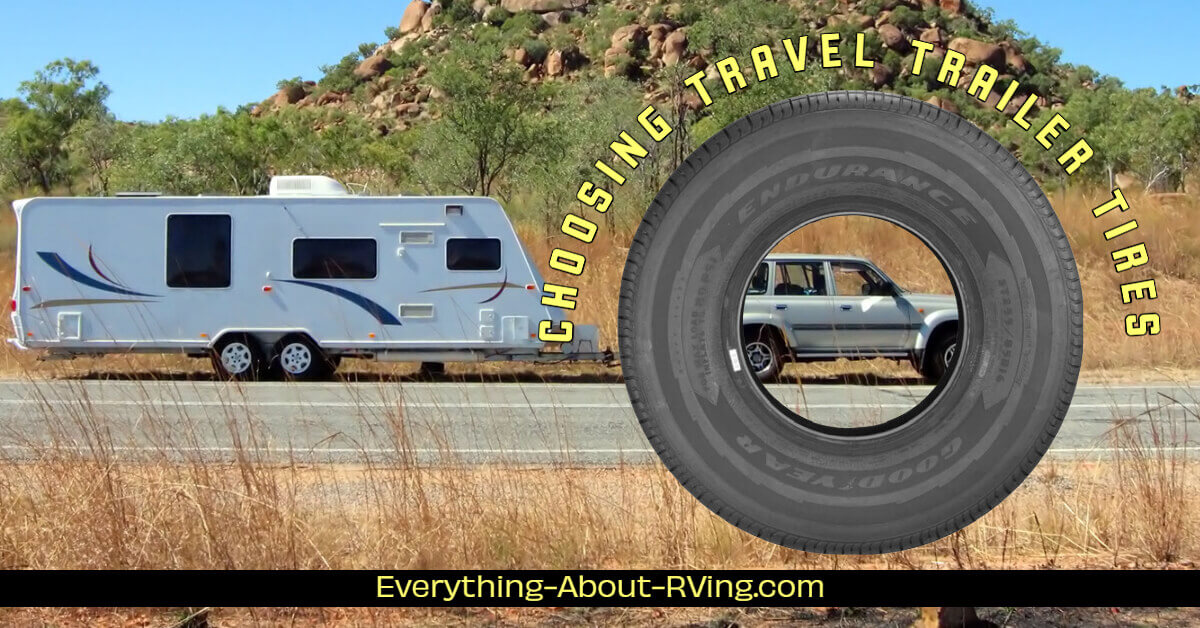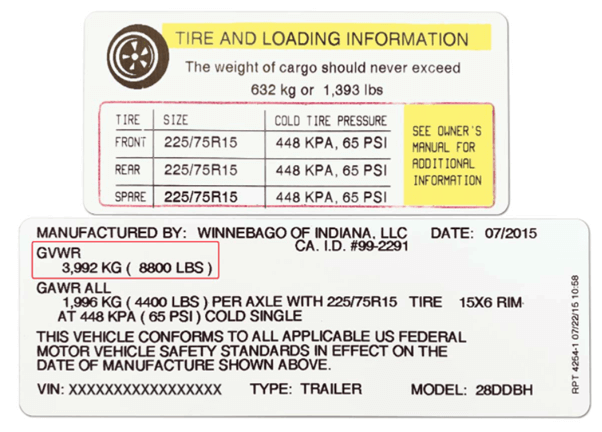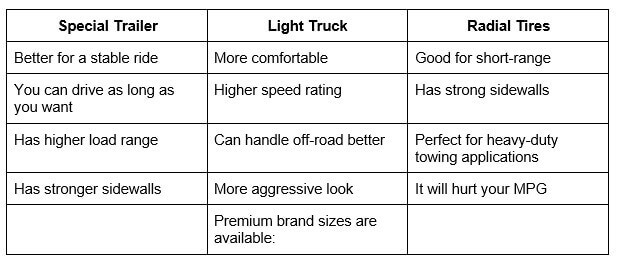- Home Page
- RVing Tips & Tricks
- Travel Trailer Tires
Choosing Travel Trailer Tires
By Emrecan Gurkan
Choosing travel trailer tires can be challenging because there are a ton of tires available...
Choosing a tire for your travel trailer can sometimes be challenging. Well, it's reasonable because there are tons of tires available on the market right now. What is worse, people have different opinions about the same tire. While a certain number of people are happy with the tires' performance, others aren't. The reason beyond this case is simple. People can't define what conditions they will use the tires in, which is the most critical part of tire selection. No worries. I'll explain how to properly determine your towing conditions and match them with the right tires.
How to Properly Define Your Towing Conditions
When I was working for Bridgestone, the first thing they taught me was defining driving conditions. My manager continuously repeated this idea to me, and I must admit that it was a bit annoying. However, when I understood the background, things became clear to me.
So, I decided to create a checklist for myself. This list works well for me. Look at the steps below to define your tire usage.
On/Off-Road Percentage
On and off-road tires have different focus points. Therefore, their internal structure is different. For instance, while highway tires don't need thick sidewalls, it's a must for off-road tires. As a result, off-road tires are heavier than highway tires, and they tend to consume more gas.
If you don't regularly tow your trailer off-road, you might want to choose a highway-focused trailer tire. Even with this choice alone, your gas consumption will decrease, and your driving comfort will increase.
The toughness of the tire surface is also important for tire selection. For instance, if you're working on a construction site, you need a tire that can resist sharp rocks or nails. Due to this extra resistance, your tires will heat up quicker than your mild off-road tire, which means they will wear out rapidly.
Sidenote: Bias tires work better on severe off-road
conditions. Yet, you will sacrifice tread life
Vehicle Limitations
Vehicle limitations cover torque and weight for regular vehicles. However, travel trailers don't have an engine. So, our only evaluation point is weight.
This point is important because your tires’ load index must meet or exceed the trailer’s GVWR(Gross Vehicle Weight Rating). GVWR is the trailer’s maximum operation weight(including cargo).
Good Sam members enjoy instant discounts on fuel. Join Today!
Driving Style
Range
This might sound weird, but tires have a range, especially trailer tires.
For example, if you use bias tires for 3-4 hours at a stretch, I can guarantee you will have a blowout. However, you can drive on highway trailer tires for as long as you want. So, this item should be on your list.
While bias tires aren't capable of long-range trips, radial tires can easily handle both mid and short-range trips.
Conclusion
If you look at the chart below, you can choose the best tire for your travel trailer without struggling.
Note: Travel trailers use the same LT tires that ¾ ton or above trucks use.
I hope the article was helpful. Happy RVing!
About The Author
Emrecan Gurkan is a former Bridgestone engineer. He has been leading Bridgestone's field tests for three years. Now, he's the founder of Tireterrain.com - Tire Decision Guide. Emrecan has been writing articles to share his field experience and combine it with high-level technical knowledge.





